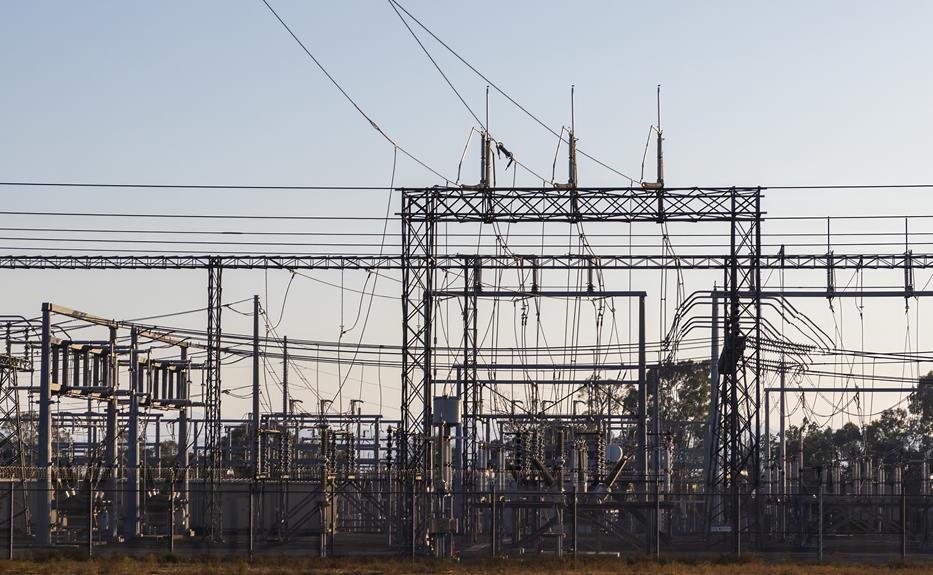Power Boost: The Advantages of Methanol Injection Kits
In the world of high-performance automobiles, methanol injection kits have become an unparalleled game-changer. This innovative technology, tracing its roots back to World War II fighter planes, offers an efficient way to increase horsepower and torque while maintaining engine health. As we delve into the intricacies of these kits, we'll explore their history, operational benefits, applications, and safety considerations, positioning you to make an informed decision about this powerful performance-enhancing tool.
Key Takeaways
- Methanol injection kits increase horsepower and torque by improving combustion efficiency.
- Methanol injection offers a cooler intake charge compared to turbochargers and superchargers.
- Methanol injection provides sustained performance enhancement unlike nitrous oxide systems.
- Methanol injection aids in mitigating engine-damaging detonation and contributes to engine longevity.
Understanding Methanol Injection Kits: An Overview
How exactly do methanol injection kits function and what are their key components? The primary operation of a methanol injection kit is quite straightforward. It involves injecting a controlled amount of methanol into the intake of a forced induction engine, typically a turbocharger or a supercharger. The methanol's evaporation cools the intake charge, resulting in a denser air/fuel mixture that improves combustion efficiency, thereby increasing engine power.
The key components of a methanol injection kit typically include the pump, the tank, the injection nozzle, and the controller. The pump pushes the methanol from the tank through the injection nozzle, which atomizes it into the intake air stream. The controller manages the timing and volume of methanol injection, often in response to factors such as boost pressure and intake air temperature.
In essence, methanol injection is a practical and effective method of managing heat in forced induction systems. By introducing a cooling agent directly into the combustion process, it can significantly reduce the risk of detonation, thereby enhancing engine performance and longevity. It's a powerful tool for those seeking liberation from heat-induced power limitations.
Historical Development of Methanol Injection Kits
The evolution of methanol injection kits dates back to World War II, marking a significant milestone in the history of automotive innovation. The kits were initially designed to augment the performance of fighter aircraft during high-altitude combat. The implementation of methanol-water injection systems provided a power boost by cooling the intake air, thus increasing the aircraft's engine density and preventing detonation.
Post-war, these systems were adopted by the automotive industry, initiating an era of enhanced performance intercoolers. The first commercial methanol injection kits were simple, consisting of a reservoir, a pump, and a nozzle. The nozzle would spray a fine mist of methanol into the performance intercooler piping, thus reducing air intake temperature and increasing horsepower.
Over time, the technology evolved, and modern kits were developed with advanced features. These include sophisticated electronics for precise control of methanol delivery, pressure sensors for optimal performance, and fail-safe mechanisms to prevent engine damage. Today's methanol injection kits are a testament to this historical development, offering drivers liberation from traditional constraints, and empowering them with the ability to extract maximum performance from their vehicles. This historical evolution underscores the value of methanol injection kits as a power-boosting solution in the automotive world.
Comparing Methanol Injection Kits to Other Power Boost Options
In the pursuit of maximizing vehicle performance, methanol injection kits stand as a viable option, warranting a comparison to other power boost options available in the modern automotive market. Unlike traditional turbochargers and superchargers, methanol injection kits offer a unique blend of benefits, including a cooler intake charge, reduced engine knock, and increased horsepower.
Turbochargers and superchargers, while effective, often increase engine temperature leading to a phenomenon known as 'knocking', which can cause severe engine damage. On the contrary, methanol's high latent heat of vaporization provides an excellent cooling effect, reducing engine knock and promoting efficient combustion.
Furthermore, unlike nitrous oxide systems which provide a temporary boost, methanol injection kits offer sustained performance enhancement. They introduce a precise quantity of methanol into the engine's intake, improving the fuel-air mixture's combustibility, and consequently, the engine's horsepower and torque.
However, it's worth noting that these kits require careful installation and calibration to ensure optimal performance and safety. In conclusion, while there are numerous power boost options available, methanol injection kits offer a unique blend of benefits that make them a compelling choice for those seeking performance liberation. This brings us to our next discussion: the science behind methanol injection kits.
The Science Behind Methanol Injection Kits
To fully grasp the advantages of methanol injection kits, it is crucial to first understand their scientific makeup and function. This entails a thorough look at the mechanics of methanol injection, the chemical reactions that occur during its operation, and how these elements collectively influence vehicle performance. The subsequent discussion will elucidate these key points in detail, providing a comprehensive analysis of the science behind methanol injection kits.
Methanol Injection Functionality
Several key scientific principles underpin the functionality of methanol injection kits, enhancing vehicle performance in numerous ways. The primary principle is the high heat of vaporization of methanol, which when injected into the intake airstream, causes a significant temperature reduction. This cooling effect increases the density of the intake charge, thereby boosting the engine's power.
In addition, methanol's chemical properties allow for an increased compression ratio without the risk of engine knocking, a common issue with standard fuel types. Engine knocking can lead to significant engine damage, thus methanol's anti-knock properties are of substantial benefit.
Lastly, methanol acts as a high octane fuel when mixed with the existing fuel-air mixture, further enhancing combustion efficiency and power output. Therefore, methanol injection presents a scientifically sound and effective method for boosting engine performance.
Chemical Reaction Explanation
Two crucial chemical reactions occur when methanol is injected into an engine, and both contribute significantly to the power boost observed.
- Firstly, methanol has a high latent heat of vaporization. This means as methanol evaporates, it absorbs heat, cooling the intake charge. This denser charge reduces the chance of detonation, enabling a higher compression ratio.
- Secondly, methanol's chemical structure, CH3OH, allows it to act as a hydrogen carrier. During combustion, the extra hydrogen can bond with oxygen to produce additional power.
- Thirdly, the oxygen atom in methanol can also contribute to the combustion process, further enhancing power output.
- Fourthly, methanol's low stoichiometric air-fuel ratio allows more fuel to be burned, generating additional power.
- Lastly, methanol's high octane rating reduces the risk of knocking, permitting more aggressive ignition timing.
Let's now examine how these chemical reactions impact engine performance.
Impact on Performance
Understanding the science behind methanol injection kits involves delving into their significant impact on engine performance. Methanol, when injected into the intake manifold, undergoes atomization. This process creates a fine mist that evaporates quickly, reducing intake air temperature drastically. The cooler air is denser, containing more oxygen molecules per cubic foot, thus enabling better combustion and more power.
Moreover, methanol itself also participates in the combustion process as a fuel, liberating extra power. The outcome is a significant increase in horsepower and torque. Additionally, methanol injection aids in mitigating engine-damaging detonation, providing a safety margin against aggressive tuning practices. Hence, methanol injection kits not only enhance performance but also contribute to the longevity of the engine, underscoring their vital importance in power augmentation.
Key Components of Methanol Injection Kits
To fully appreciate the power boost methanol injection kits can provide, one must first break down the key components that make up these systems.
The core parts of a methanol injection kit are intricate, each playing a vital role in enhancing performance and efficiency. The essential components include:
- Methanol Tank: This stores the methanol used for injection. The size of the tank can vary depending on the vehicle's needs.
- Pump: Responsible for moving the methanol from the tank to the injectors.
- Injectors: These spray the methanol into the air intake, where it mixes with the air before entering the combustion chamber.
- Controller: This regulates when and how much methanol is injected, typically based on manifold pressure or engine RPM.
- Lines and Fittings: These connect all components together, ensuring a seamless flow of methanol from the tank, through the pump, to the injectors.
Understanding these components is the first step in fully liberating the power potential of your engine. Their interplay is the key to the enhanced performance, reduced engine heat, and improved fuel efficiency that methanol injection kits can offer.
Installation Process for Methanol Injection Kits
In this section, we will guide you through the step-by-step process of installing a methanol injection kit in your vehicle. Keep in mind that the process may vary slightly depending on the specific methanol injection kit you have purchased.
First, locate an appropriate place to mount the methanol tank. This should be a sturdy and secure location, often in the trunk or under the hood. Once the tank is securely mounted, connect the feed line to the tank. From here, route the feed line to the front of the vehicle, keeping it away from any moving parts or sources of heat.
Next, mount the injection nozzle into your vehicle's intake pipe. The nozzle should be positioned downstream of the mass air flow sensor and upstream of the throttle body. After this, connect the feed line to the injection nozzle.
Now, you need to install the controller. This device regulates the methanol injection based on boost pressure or RPM. Connect the wiring harness to the controller, ensuring correct connections to the vehicle's ignition, the methanol pump, and the optional failsafe.
Lastly, fill the tank with methanol and check your installation for any leaks or errors. Once you have verified that everything is in order, your installation process is complete.
Operational Benefits of Using Methanol Injection Kits
With a methanol injection kit, not only can you expect an immediate increase in horsepower and torque, but also a significant reduction in engine-damaging detonations, offering two-fold benefits for your vehicle. This innovative system considerably improves the operational efficiency of your vehicle, while also contributing to its longevity.
The benefits of methanol injection kits span various aspects:
- Increased combustion efficiency: Methanol, as a high-octane fuel, facilitates a more complete combustion process, thereby improving engine efficiency.
- Greater power output: The cooling effect of the methanol-water mixture results in denser air intake, leading to enhanced engine performance.
- Reduced engine wear: By limiting detonations, the system aids in avoiding undue stress on the engine, thus extending its lifespan.
- Emissions control: Methanol combustion reduces the production of harmful emissions, contributing to a greener environment.
- Fuel economy: The system's ability to utilize a leaner fuel mixture without risking detonation translates into improved fuel efficiency.
Understanding these operational benefits can liberate you from the constraints of traditional fuel systems, opening up a world of enhanced performance and efficiency. In the next section, we explore 'real-world applications of methanol injection kits', showcasing practical examples of these benefits in action.
Real-world Applications of Methanol Injection Kits
Methanol injection kits are not confined to the realm of theoretical advantages; their practical applications span various sectors. In the domain of racing, these kits significantly enhance performance, while industrial applications also present a plethora of use cases. Furthermore, they are increasingly being adopted for upgrading everyday vehicles, underscoring their versatility and wide-ranging benefits.
Racing Performance Enhancement
Performance enhancement in the racing industry has seen significant breakthroughs due to the application of methanol injection kits. These systems have revolutionized the way vehicles operate, providing several key benefits, such as:
- Increased horsepower: Methanol injection allows for a higher compression ratio, resulting in enhanced power output.
- Improved fuel efficiency: Methanol burns cooler and more completely than gasoline, reducing fuel consumption.
- Enhanced engine longevity: The cooler burn temperature of methanol reduces engine wear, increasing its lifespan.
- Reduced heat soak: Methanol's lower burn temperature helps to keep the engine cool, even under extreme conditions.
- Better throttle response: With the right tuning, methanol injection can significantly improve throttle response, making the vehicle more responsive and agile.
In essence, methanol injection kits offer a liberation from constraints, enabling a new level of performance in the racing industry.
Industrial Use Cases
Several industries, from agriculture to energy, utilize methanol injection kits, and these practical applications underscore the versatility and efficacy of this technology. For instance, in the oil and gas sector, these kits are employed to prevent the formation of hydrates in pipelines, thereby enhancing operational efficiency and safety. In the automotive industry, it is used to boost engine performance and reduce carbon emissions. Agricultural operations utilize it to improve irrigation and pest control processes. Furthermore, in the energy sector, methanol kits are essential in fuel cells for power generation, demonstrating their multifaceted functionality. Thus, methanol injection kits, with their diverse industrial use cases, are proving to be a pivotal tool in driving process optimization and environmental sustainability.
Everyday Vehicle Upgrade
Beyond the realm of industry, methanol injection kits are increasingly being recognized as a valuable upgrade for everyday vehicles, offering enhanced engine power and fuel efficiency, and simultaneously reducing harmful emissions.
Here are some real-world applications of methanol injection kits:
- Performance Boost: They increase horsepower and torque, providing a noticeable improvement in acceleration and overall performance.
- Fuel Economy: Methanol injection can significantly enhance fuel efficiency, reducing the cost of operation.
- Emission Reduction: The kits help in reducing harmful carbon emissions, making your vehicle more environmentally friendly.
- Engine Protection: Methanol injection lowers engine temperature, reducing the risk of engine knock or detonation.
- Versatility: These kits can be installed in almost any type of vehicle, from compact cars to large trucks, increasing their utility in everyday driving scenarios.
Safety Measures to Consider With Methanol Injection Kits
In the process of utilizing methanol injection kits, it is crucial to adhere to certain safety measures to reduce risks and optimize performance. The first step is to ensure proper installation. Incorrectly installed kits can lead to fuel leaks and potentially dangerous situations. Therefore, it is recommended to employ a professional installer or follow the manufacturer's guidelines meticulously.
Secondly, regular inspection and maintenance of the system is essential. This can prevent malfunctions and ensure the longevity of the kit. Pay particular attention to the status of the methanol tank, pumps, and injectors, as these parts are frequently subjected to wear and tear.
Thirdly, it's important to use a high-quality methanol/water mix. Impurities in methanol can cause equipment failure and damage the engine. Therefore, always source your methanol from a trusted supplier, ensuring its purity and quality.
Lastly, bear in mind the flammable nature of methanol. Store it safely, away from heat sources and out of reach of children.
Adherence to these safety measures not only ensures optimal performance but also prolongs the lifespan of your vehicle. As we venture into the future, we shall explore how innovations in methanol injection kits technology will continue to enhance its safety and efficiency.
Future Innovations in Methanol Injection Kits Technology
With no less than a dozen promising advancements on the horizon, and the increasing demand for improved efficiency, the future of methanol injection kits technology looks brighter than ever. This technology, which has been around for decades, is undergoing a rapid and exciting transformation, thanks to a number of emerging trends and innovations.
Notably, the following five developments are poised to redefine the use and efficacy of methanol injection kits:
- Nanotechnology-enhanced methanol: This technology promises to increase the surface area of methanol, thereby improving its combustion efficiency.
- Smart Injection Systems: Advanced sensors and algorithms will enable real-time adjustments to methanol injection, optimizing performance and fuel economy.
- Bio-Methanol Integration: The use of bio-methanol, a renewable source of energy, is expected to reduce the environmental impact of methanol injection systems.
- High-pressure Injection Systems: These systems can inject methanol at higher pressures, increasing the fuel's atomization and improving combustion efficiency.
- 3D-Printed Components: The use of 3D printing technologies is expected to lower manufacturing costs and increase customizability.
These advancements not only signify the enhanced performance of methanol injection kits but also push the boundaries of automotive technology, offering a liberating glimpse into the future.
Frequently Asked Questions
What Is the Average Cost of a Methanol Injection Kit?"
The average cost of a methanol injection kit varies widely, typically ranging between $300 to $700. This cost depends on the specific model, included components, and whether professional installation is required or not.
How Frequently Does a Methanol Injection Kit Need Maintenance or Replacement?"
The frequency of maintenance or replacement for a methanol injection kit greatly depends on usage. However, under normal conditions, inspecting the kit every six months and replacing parts as needed is typically sufficient.
Can Methanol Injection Kits Be Installed in Any Type of Vehicle?"
Methanol injection kits can typically be installed in a variety of vehicles, particularly those with turbocharged or supercharged engines. However, compatibility depends on specific vehicle configurations and professional advice should be sought for individual cases.
Are There Any Legal Restrictions or Requirements for Using Methanol Injection Kits?"
Legal restrictions for using methanol injection kits vary by jurisdiction. Some areas may mandate emissions testing or prohibit their use entirely. It's essential to confirm local regulations before installing these performance-enhancing components in your vehicle.
Where Can I Purchase a Reliable Methanol Injection Kit?"
Reliable methanol injection kits can be purchased from various online retailers such as Amazon and eBay, specialty automotive stores, or directly from manufacturers like AEM, Snow Performance, and DevilsOwn. Ensure product quality before purchasing.
Conclusion
In conclusion, methanol injection kits stand as an impactful technological innovation in the realm of power boosting. They offer superior efficiency, operational benefits, and versatility in real-world applications. Nevertheless, safety considerations remain paramount. With an eye towards future advancements, the potential of these kits is vast, promising a horizon gleaming with powerful engines, streamlined operations, and increased performance in diverse automotive contexts. The stage is set for a revolutionary leap in power boosting technology.






